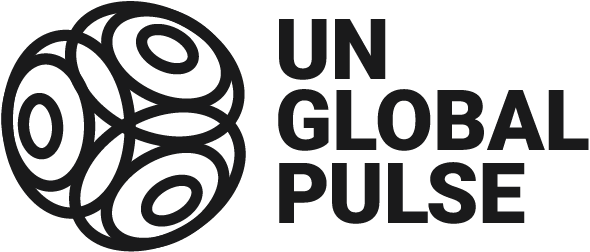UN Global Pulse is proud to announce the third cohort of its Accelerator Programme.
Launched in 2023, the UN Global Pulse Accelerator is the United Nations’ programme for turning promising UN-led innovative ideas into real-world impact at scale, ensuring that exceptional pilots reach more communities through adaptable delivery models and future-fit strategies.
At a time marked by pressing global challenges and rapid change, the Accelerator equips UN teams to navigate complexity and drive urgent, meaningful change for people and planet. Specifically, the third cohort of the Accelerator targets three main themes: digital inclusion, job creation and livelihoods, and the climate and biodiversity crisis.
After receiving a record-breaking 153 eligible applications from 29 UN entities working across 155 countries, 8 UN entities have been selected through a competitive process to participate in an intensive workshop from October 6-10, 2025, in Helsinki, ranked as one of the most innovative cities in the world, to create future-fit strategies for scaling their innovative solutions.
This new cohort will receive support from a pool of multidisciplinary experts and an opportunity to network with public and private sector entities to strengthen their pathways to impact. Three teams with the most promising scaling strategies will emerge at the end of the week-long workshop, and will be awarded a Scale Catalyst Grant of USD 60,000, along with dedicated mentoring and technical support to drive the scaling journey.
We’re proud to introduce the third cohort of the programme and their exceptional UN-led pilot initiatives:
- Food and Agriculture Organization (FAO) – DIGICHILD (Digital Geographic Information for Child Labour Risk Estimation) Initiative is a spatial index that combines georeferenced data to assess child labour risks in agriculture at the local level. It identifies hotspots, drivers, and future risk patterns, and is hosted on FAO Agro-informatic Platform for public access. Successfully piloted in Honduras and Uganda, it supports governments and companies to adopt tailored and cost-effective actions. The index is ready for upscaling to other countries, leading to a breakthrough in ending child labour.
The participating team: Adriano Bolchini – Child Labour Expert / Arun GC – Assistant FAO Representative (Programme) / Jan Martin Rossi – Spatial Economist. - International Organization for Migration (IOM) – Circular Economy Model for E-waste Management is a community-led circular economy model for managing e-waste in displacement settings. In Bidibidi Refugee Settlement, Uganda, refugee and host youth are trained to repair, recycle, and repurpose electronics through repair hubs and a solar-powered Battery Lab that converts end-of-life cells into second-life battery packs to power households and micro-enterprises. By reducing unsafe disposal and creating green jobs, the project enhances livelihoods and builds resilient, sustainable communities.
The participating team: Bisharo Ali Hussein – Programme Officer, Migration Governance, Policy and Development / Abubaker Mayemba – Senior Project Assistant / Robert Akankwasa – National Programme Officer – DRR/WASH. - OHCHR/ UN Human Rights – Civic Space Pulse is an AI-driven data collection and classification system developed by UN Human Rights that enables tracking of events such as public demonstrations, internet shutdowns, and attacks on human rights defenders or civil society organisations. The system facilitates human rights monitoring, prevention of escalation, protection of victims and support to accountability.
The participating team: George Hodge – Head of Data Solutions / Mohamed El-Mokadem – Data Scientist / Annissa Zahara – Data Engineer. - UN Refugee Agency (UNHCR) – Digital Accountability to Affected Populations (AAP) is an AI-powered feedback platform that lets refugees share voice or text through WhatsApp, web and Interactive Voice Response (IVR). It verifies identity, transcribes and translates, classifies issues, and routes cases to the right team in near real time. An internal MVP is complete in Jordan, with partner pilots planned in other UNHCR Operations. The aim is faster, safer two-way communication that improves services and accountability.
The participating team: Shahzad Asghar – Snr Information Management officer ,Head of Data Analysis Group(DAG) / Dana Al Jasjeen – Assistant Operations Data Management Officer / Khalid Shacoge – Senior Data Management Assistant. - UNRWA – Job Creation Platform (JCP) is transforming how humanitarian employment is delivered by harnessing digital innovation. With a refugee-centric design, it scales across multiple fields to create dignified livelihood opportunities, drive economic resilience, and set a new standard of transparency and accountability.
The participating team: Hani Kurdiya – Head, IT Service Center / Bassam Qormosh – Analyst Programmer / Nicholas Gan – Head of Software Development Section / Mohammed Sobeh – Lead, IT Service Center Software Factory - UN Women AI School and Equality Lab equips women leaders, UN personnel, and government and civil society partners with the skills to design and deploy gender-inclusive AI. Through the AI School and the Equality Lab, participants engage in open-source learning, labs, and co-creation with tech allies. The initiative builds a vibrant peer network and pipeline of AI projects that embed gender perspectives from the outset, advancing ethical AI literacy, leadership, and inclusive digital transformation.
The participating team: Emad Karim – Advocacy, Campaigns & Innovation Coordinator / Hannah-Sophie Wahle – Data Analysis and Monitoring Specialist / Navim Haram – Senior Strategic Planning Specialist (RBM, Data & Innovation). - World Food Programme (WFP) – School Connect is a digital solution designed to streamline and standardize school meal programme reporting. The application digitises the entire data collection and analysis process in schools, from data entry to visualization on a near real-time dashboard. Real-time access to data enables programme officers at the country level to improve programme quality, optimize supply chain planning and reduce pipeline breaks to ensure that school children receive a meal every day.
The participating team: Tristan Schouten – Policy Programme Officer / Isabelle Lacson – Programme Policy Officer / Hugo Marchand – School Meals Digital Solution Manager. - World Health Organization (WHO) – BI Insights in Africa embeds behavioural science into public health to improve health promotion and disease control in Africa. It works through WHO country offices, ministries of health, and universities, co-creating with communities. The pilot in Burkina Faso, Namibia, South Africa, Tanzania, and Zambia focus on building capacity, generating evidence, and integrating behavioural insights into policies for more people-centered health systems.
The participating team: Doris Kirigia – Team Lead at WHO Regional Office / Simon Nzilibili – Head of Coordination and Health Promotion, Ministry of Health Tanzania / Joanna Cordero – Behavioural Insights and Community Engagement Consultant.
For inquiries or more information about the Accelerator Programme, please access the UN Global Pulse Scale Accelerator project page or contact events@unglobalpulse.org!



